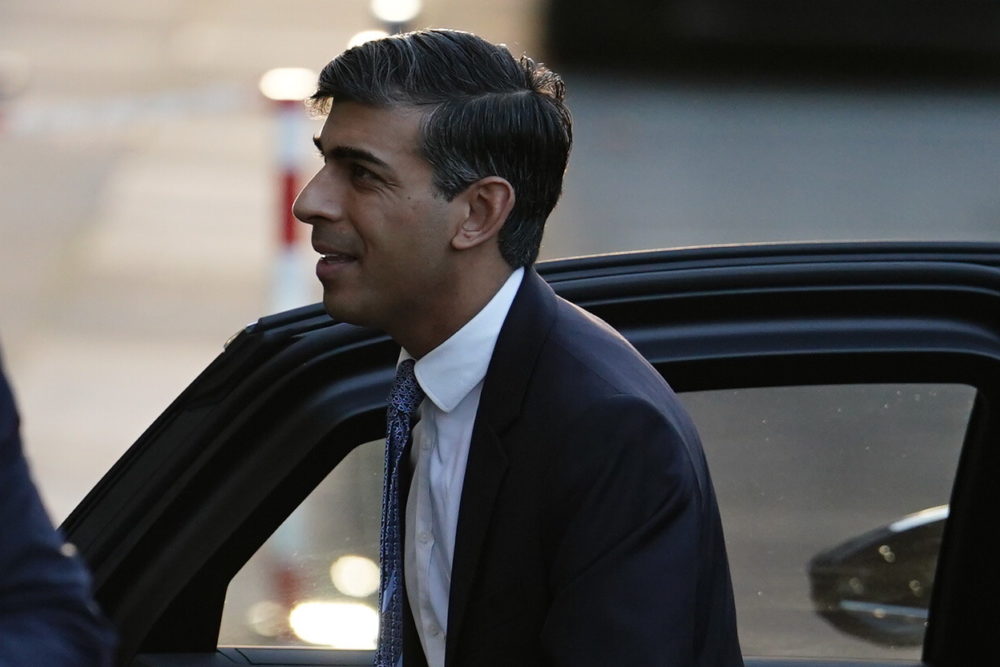Rishi Sunak will accept new £91,000 MP salary, No 10 indicates

Prime Minister Rishi Sunak will accept an inflation-busting 5.5% increase in his MP’s pay, No 10 has indicated.
The Independent Parliamentary Standards Authority (Ipsa) has recommended MPs’ basic salaries be increased to £91,346 from April, up from £86,584.
The increase is considerably larger than the 2.9% pay uplift last year and also higher than the rate of Consumer Prices Index inflation, which the latest Office for National Statistics figures suggest stood at 4% in January.
The independent watchdog, established in 2009 in the wake of the MP expenses scandal, said the decision had been taken in line with the award recently agreed for the senior civil service.
£500 million
The Prime Minister’s official spokesman, asked whether Mr Sunak — who jointly with his wife is said to be worth more than £500 million — would accept the pay rise, said “all Commons ministers” would “receive the uprating” awarded by Ipsa.
But the No 10 official pointed to ministers having opted not to take pay increases in recent years for their frontbench work.
He said: “For the Government’s part, I would point out that ministers are already voluntarily waiving part of their salaries, forgoing any pay increase to their ministerial salaries, which means that salaries of ministers in the Commons have not increased since 2010.”
According to Government data, the role of the prime minister in 2022-23 — the financial year in which Mr Sunak came to power — was allocated a salary of £80,807, with £75,440 of that claimed.
The five-figure sum is paid on top of the Prime Minister’s separate salary for being an MP.
When Downing Street published a summary of Mr Sunak’s taxable UK income last month, it showed he paid more than £500,000 in tax in 2022-23, with his total income rising to £2.2 million.
Capital gains
The Conservative Party leader made nearly £1.8 million through capital gains – up from £1.6 million in 2021-22 – as well as £293,407 in other interest and dividends.
All of the investment income and capital gains came from a US-based investment fund listed as a blind trust, according to the summary.
The £139,477 he earned from his MP and prime ministerial salaries made up just 6% of his total income.
The declaration took his total earnings over the last four years to about £7 million.
Mr Sunak and his wife, Akshata Murty, the daughter of the billionaire co-founder of Indian IT giant Infosys, have a combined wealth estimated at about £529 million, according to 2023’s Sunday Times Rich List.
The former investment banker and hedge fund manager has faced accusations of being out of touch with the British public struggling with the cost-of-living crisis due to his vast wealth.
Support our Nation today
For the price of a cup of coffee a month you can help us create an independent, not-for-profit, national news service for the people of Wales, by the people of Wales.





Modi’s BJP party accepts £570 million in dodgy donations to finance elections…
What Modi Ji does today Rishi Ji will do tomorrow…
very rich, but never enough for this money grabbing little upstart!
The salary is payable to him by virtue of the fact that he is an M.P. His constituency electorate should soon decide whether or not he is worth it, or indeed anything.
If it was up to me all politicians (in westminster, Cardiff, Edinburgh and Belfast) would get the same percentage as the lowest given to other public sector employees!